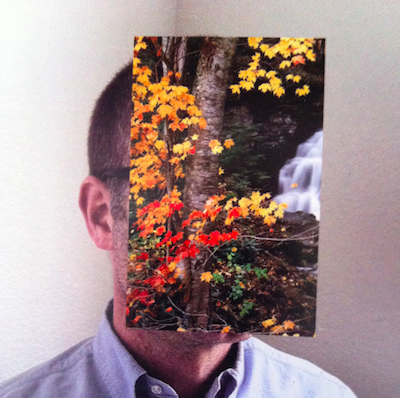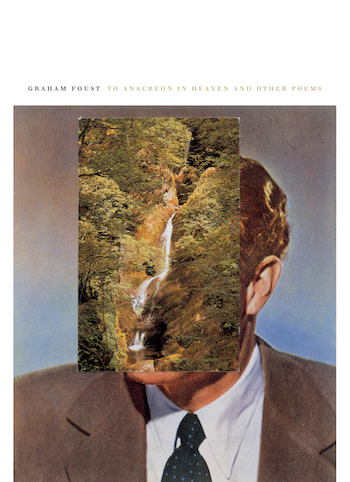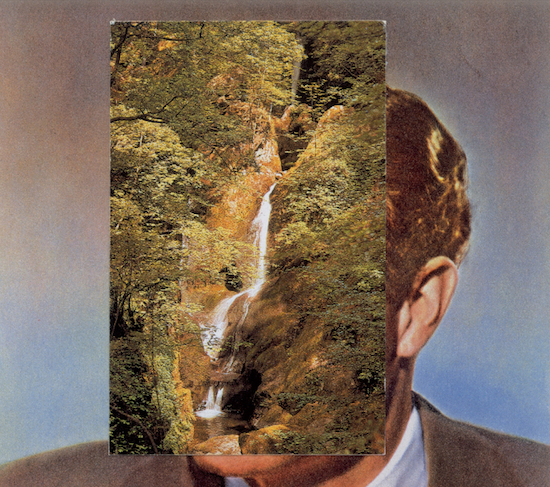There’s a growing, worrying tendency in poetry feature writing to begin an article about an author with a list of accolades, qualifications, prize nominations, and publishing credentials. More often than not, this is a symptom of the fact that most poets – in the Anglophone world at least – just aren’t very interesting, which can make it difficult for a reviewer to do anything other than regurgitate the language of CVs (or, more usually, press releases) when introducing said poet to the wider world.
Fortunately, Graham Foust isn’t that sort of poet. As a newcomer to Foust’s work, I don’t know if he’s been nominated for any awards. But I do know, on brief acquaintance, that his poems are idiosyncratic, eloquent, weird, and often downright brilliant. If you’re disillusioned with the PR-noise and nepotism of the mainstream literary scene here in Britain, you are strongly advised to seek out this American maverick’s powerfully bizarre writing in order to have your faith in writing reaffirmed.
There’s a line – a couplet of sorts – in Foust’s new collection, To Anacreon in Heaven and Other Poems:
The “again” in the chorus of “Love Will Tear Us Apart” suggests that love
might also keep those two together.
To the uninitiated, this offers a pretty good summary of Foust’s unique style. On the one hand, he’s a sort of literary parallel of Joy Division at their most gothic. His voice is wry, weary, by turns sardonic and strenuous. He alludes continually to bones, hell, children dying, insomnia, blood, darkness, night, nothingness. If Ian Curtis were alive today, it’s a safe bet he would dig Foust’s nightmare surrealism. Some examples: ‘There’s nothing sexier than a wounded supermodel leaning on a cane,’ ‘Now back to pain in a room lit with teeth,’ ‘The president travels with bags of his own blood,’ ‘Today’s another one of your last.’ John Berryman, the poet laureate of late-twentieth-century American morbidity, is another obvious point of comparison.
But there are also older historical influences underlying Foust’s interest in depression and dissipation. Anacreon was an ancient Greek poet famed for his drinking “hymns.” The title of Foust’s latest collection is lifted directly from a song by an <a href=” http://en.wikipedia.org/wiki/Anacreontic_Society” target=”new”>18th-century London gentleman’s club of amateur musicians, for whom Anacreon was a mascot. ‘To Anacreon in Heaven’ was the society’s official song, and the tune (minus the alcoholic lyrics) later became the basis for the American national anthem, “Star-Spangled Banner.”
Foust’s mining of the dark side of US nationhood in the title and subject matter is in keeping with a wider contemporary trend: From Lana del Rey’s Lynch-does-Disney aesthetic to US-Civil-War chic (see the beards and bowties so beloved of Williamsburg hipsters), modern America is a society obsessed with the yellowing, gothic negative of its national mythos. For much of the twentieth century, American art tended to be optimistic, confident, replete with amplified sound and colour. But now, in a more uncertain period, the typical US artwork is preoccupied with decay, death, and decline. The sunshine futurism of the post-war years has been decisively replaced by foreboding, decadence, and introversion. Many of the surreal juxtapositions in Foust’s ‘To Graham Foust on his Fortieth Birthday’ aptly sum up this epochal shift from pop cultural innocence to mature black comedy:
How is it that you’re able to hum the theme from The Dick Van Dyke Show,
even though you haven’t heard the tune in thirty years?
Remember when you bit off your other hand and threw it at me,
thereby saying goodbye?
Foust himself, though, is wary of such era-specific readings of his work. ‘There’s a part of me that thinks that warding off the awfulness of our historical moment is one of the dominant features of our historical moment,’ he told me via email from the other side of the world (Foust currently lives in Denver, Colorado). ‘I hope I’m not doing that.’ Nevertheless, he says, ‘I do think the time and the world in which I live is visible in my poems. I hope that it’s vivid enough that it “helps people to live their lives,” as Wallace Stevens says.’

In fact, this willingness to recover something affirmative from the “awfulness of our historical moment” is at the forefront of Foust’s writing. His reading of ‘Love Will Tear Us Apart’ as a cautiously hopeful love song offers a key to his broader project. If he channels Joy Division’s dark side, Foust is also an American optimist who sees love and idealism in the bleakest, blackest places.
The way his poetry is structured helps to bring out this comingling of dark and light tones. In To Anacreon in Heaven, the habitual mode is a sort of prose pointillism: the verse is constructed out of short fragments (usually only one or two lines in length) that read like proverbs or aphorisms. The greatest virtue of this technique is that it allows Foust to shift quickly between different moods and registers. So we get a fragment like this:
It’s as if some lovely person stood there, a taser in one hand, a mug of hot-but-
not-too-hot-broth in the other.
But then immediately afterwards we get a fragment like this:
The planet arranges its weather; a garden grows apart and answers water.
The effect of such rapid juxtapositions can be jarring, even shocking, but there is something about these laconic combinations of the ghoulish, the ironic, the graceful, and the faintly transcendental that perfectly embodies the emotional vocabulary of the early twenty first century.
For all its world-weariness, then, Foust’s poetry is ambitious because it suggests that if we can accurately register the variety of textures in the English language at this moment in time, this might form the basis of a much more profound inner transformation. Foust comments: ‘One tries to write as well as one can in the hope that someone not yet born will someday read it and be moved by it. Actually, why settle for that—it sounds so trite. One hopes that one might someday change another person’s life. Other poets have done that for me, so I know it to be possible. Whether or not I can do it—well, that’s not for me to decide. This probably sounds hopelessly old fashioned (and perhaps, again, trite) in a world where people have gotten comfortable with disposability and constant change. But I can’t help it. I have to believe that some poetry has the power to do this.’ Somewhere in this endorsement of the limitless possibility of poetry is the romantic heart of Graham Foust’s darkly eccentric interpretation of American idealism. Someday soon it might just change your life.

To Anacreon in Heaven and Other Poems is available now, published by Flood Editions


